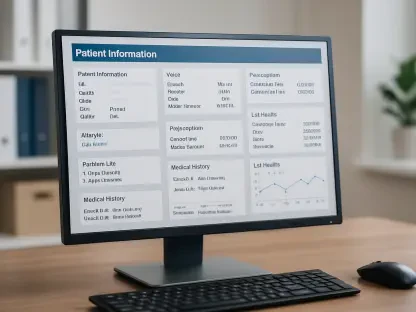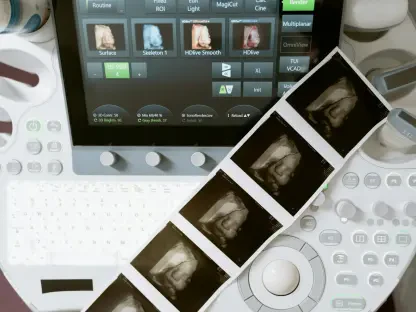The United States is navigating a complex and evolving legal landscape regarding abortion rights, intensified by the 2022 Supreme Court decision in Dobbs v. Jackson Women’s Health Organization. The indictment of Dr. Margaret Carpenter, a New York physician accused of mailing abortion pills to a Louisiana resident, has become a focal point in this debate, capturing national attention and sparking widespread analysis on the potential legal ramifications for similar cases. This incident highlights the myriad ways these actions could redefine the legal framework surrounding reproductive rights across the nation.
Legal Uncertainty for Abortion Providers
Navigating a Murky Legal Landscape
The indictment has sent ripples through the medical community, with providers expressing concerns about the complex legal landscapes they now face. Physicians and clinics involved in reproductive healthcare are finding themselves at a crossroads, navigating an intricate web of varying state laws and regulations that diverge widely in terms of stringency and enforcement. This legal quagmire is particularly acute for those sending abortion medications across state lines, where such actions could lead to criminal charges in states with restrictive abortion laws. The lack of a uniform legal framework means that providers are often reliant on legal guidance to decipher the intricate statutes governing their practice.
The uncertainty has left many medical professionals in a state of heightened anxiety, with legal liabilities posing a significant threat to their practice. With some states enacting strict anti-abortion laws while others provide more lenient regulations, a patchwork of legal standards emerges, forcing providers to become well-versed not only in their state’s laws but also in those of the states to which they may be sending medications. This inconsistency has pushed providers into a defensive stance, with many reevaluating their approach to telemedicine and cross-state medical practices amidst fears of potential legal action.
Fear and Anticipation of Prosecution
For those involved in sending abortion pills across state boundaries, the fear of prosecution looms large, creating an environment fraught with legal peril. The indictment has amplified apprehensions within the medical community, as providers must consider the possibility of facing indictment or legal challenges for actions previously viewed as an integral part of their service provision. These fears are not unfounded, as legal actions against providers threaten to disrupt their practice, consume resources, and, in some cases, even lead to the loss of medical licenses.
The hostile legal environment results in a chilling effect on those attempting to offer necessary reproductive care. Many healthcare professionals find themselves at the intersection of their duty to provide medical care and the risks posed by potential prosecution. This dichotomy contributes to a tense atmosphere where anxiety among providers is palpable, yet the moral imperative to ensure access to abortion care remains a driving force. The anticipation of legal challenges forces many practitioners to weigh the risks and benefits of continuing their practice amid uncertain legal tides.
Protective Measures: Shield Laws
Safeguarding Practitioners
Shield laws have emerged as a pivotal tool to protect doctors prescribing abortion medications in states where restrictive laws prevail. These legislative measures are designed to provide a legal buffer for practitioners, shielding them from the repercussions of prescribing or mailing abortion pills to states with stringent anti-abortion legislation. These laws function by establishing legal protections within the practitioner’s home state, safeguarding them from extradition and legal actions initiated in jurisdictions like Louisiana, which may otherwise prosecute.
While the effectiveness of shield laws varies by state, they contribute to bolstering confidence among providers who are committed to maintaining access to reproductive services despite legal threats. The legal comfort provided by these laws significantly influences a provider’s willingness to continue offering abortion services across state lines. As states like New York strengthen their legal shield provisions, they highlight the growing recognition of the necessity to protect healthcare providers engaged in such services, emphasizing a collective effort to safeguard reproductive rights against oppressive measures in other states.
Extradition Challenges
The complex legal battle over Dr. Carpenter’s extradition to Louisiana underscores the critical role and challenges of shield laws, illustrating the tensions and confrontations that arise between political leaders over differing abortion policies. As states with opposing legal philosophies on abortion come into conflict, shield laws become focal points of discussion, with Democratic and Republican governors clashing over their application and interpretation. These legal contests cast a spotlight on the broader implications of extradition laws, testing state-to-state cooperation and the balance of power between state sovereignty and federal oversight.
This confrontation represents a pivotal moment in the legal landscape, as extradition laws not only address the mechanics of transferring alleged offenders between states but also question the underlying principles of jurisdictional authority. Proponents of shield laws argue against extradition, invoking the need to respect state rights while ensuring the protection of practitioners. As legal experts and policymakers debate these issues, the future trajectory of interstate legal relationships in matters of reproductive rights remains uncertain, requiring ongoing legal analysis and legislative refinement to address emerging challenges.
The Role of Telemedicine
Expanding Access Amid Restrictions
Telemedicine has emerged as an invaluable tool in expanding access to abortion services, especially in areas with stringent legal restrictions. By facilitating long-distance healthcare delivery, telemedicine circumvents geographical barriers, allowing patients in restrictive states to access essential services otherwise unavailable in their immediate vicinity. This mode of healthcare delivery ensures that marginalized communities maintain access to critical reproductive care, contributing to a more equitable distribution of medical services.
Organizations advocating for telemedicine emphasize its importance in providing safe, legal, and timely abortion options. Despite legal hurdles, these organizations have expressed unwavering commitment to continuing their operations, reinforcing the notion that healthcare can and should transcend state boundaries when necessary. By pushing for greater telemedicine integration into healthcare systems, these groups work to sustain reliable and consistent access to abortion services amid tightening state restrictions.
Mitigating Legal Risks
Despite the elevated legal risks associated with telemedicine, providers demonstrate remarkable resilience as they adapt their strategies to operate within this contentious legal framework. These professionals continually assess developments in state legislation, restructuring their approaches to minimize personal liability and ensure compliance while still providing vital healthcare services. Innovative adaptations include enlisting legal counsel, employing secure technologies, and capitalizing on shield laws to mitigate potential legal threats to their practice.
The determination of telemedicine providers to persevere in such an uncertain environment is indicative of their commitment to preserving patient access to necessary reproductive care. They navigate the minefield of conflicting state regulations, continually exploring legal gray areas to fully understand their implications for telemedicine operations. As providers refine their methods and implement robust legal defenses, they reflect a collective effort to uphold reproductive rights despite the significant legal and constitutional challenges they face.
Legal and Constitutional Dynamics
State Sovereignty vs. Reciprocity
At the heart of the legal debate over cross-state abortion services lies a contentious interplay between state sovereignty and reciprocity, presenting challenges to legal coherence and interstate cooperation. The principle of state sovereignty emphasizes a state’s right to govern itself and enforce its own laws, setting the stage for conflict when a practitioner’s actions evoke competing jurisdictions’ legal interpretations. This dynamic becomes particularly pronounced when considering the implications for states striving to implement their abortion laws while balancing respect for other states’ legal autonomy.
Legal experts are deeply engaged in evaluating these dynamics, scrutinizing how they influence the application of shield laws and shape juristic relationships between states. The examination of historical legal precedents and contemporary constitutional doctrines informs ongoing debates over the rights and responsibilities of states when dealing with cross-state medical practices. As the legal landscape evolves, interpretations of state sovereignty and reciprocal legal responsibilities continue to morph, striving to accommodate the distinctive legal needs of each state while fostering cooperative and respectful interjurisdictional relations.
The Implications of Shield Laws
The implementation and refinement of shield laws produce profound implications for interstate cooperation, affecting both the legal standing of practitioners and broader state relationships. As states that espouse differing legal views on abortion enact shield laws, they inadvertently challenge traditional notions of reciprocity, often tipping the balance of interstate negotiations in favor of autonomy over cooperation. These legislative measures may strain relations between states, prompting discussions on both the limitations and possibilities of shield laws in protecting providers engaged in essential reproductive care.
As legal interpretations advance, they offer possible pathways for maintaining legislative and constitutional balance. By weighing the alignment of shield laws with broader constitutional protections, policymakers can deliberate potential avenues for achieving harmony between state-specific laws and national legal standards. While fissures undoubtedly exist in this regulatory framework, evolving shield laws present a significant opportunity to reassess the legal paradigms underpinning cross-state medical practices, innovating strategies that address the complexities of providing abortion services in a dynamically altered legal environment.
Personal Insights and Shared Experiences
Voices from the Trenches
Healthcare providers operating in the reproductive rights arena, such as Dr. Carpenter, offer invaluable perspectives that illuminate the moral and ethical considerations propelling their steadfast commitment to patient care. These personal narratives provide insight into the multifaceted dilemmas practitioners face and underscore the complexities driving their dedication amidst adversity. For many, the decision to provide abortion services, regardless of location, is rooted in an ethical conviction that prioritizes patient welfare and equitable healthcare access.
Within these narratives lie themes of defiance and resilience, as providers continue to navigate a treacherous legal terrain. Their stories reveal a deep-seated commitment to upholding reproductive rights, a testament to the robust ethical values that guide their practice. Despite facing ominous legal battles, these practitioners remain resolute, fortified by a resolve to endure as advocates for their patients amidst mounting external pressures. Such narratives underscore the broader discourse on reproductive rights, lending weight to discussions about the necessity of maintaining medical services across state borders in times of legal and moral debate.
Patient Perspectives and Outcomes
The real-world implications of stringent abortion laws come vividly to life through the stories of patients who rely on mailed abortion pills. These accounts offer striking insights into the challenges faced by individuals seeking access to reproductive care in restrictive environments, highlighting the urgency and necessity of telemedicine services. Patients navigating these barriers often confront logistical, legal, and personal hurdles, illustrating the comprehensive impact of restrictive laws on their reproductive autonomy.
Through these narratives, the importance of expanding telemedicine-supported services becomes apparent, reinforcing the critical role such technologies play in bridging gaps in reproductive healthcare access. These firsthand experiences reflect the inequities encountered by patients in underserved regions, collectively emphasizing the vital need for sustained advocacy and legal adaptation aimed at promoting comprehensive reproductive rights. These accounts highlight the broader push for increased accessibility and underscore the human cost of legal battles surrounding abortion rights, showcasing the essentiality of maintaining outreach and support networks for vulnerable populations.
Developing Legal Strategies and Protections
Enhancing Legal Defenses
In response to ongoing legislative fluctuations, there is a strong and growing emphasis on fortifying shield laws and legal strategies tailored to protect providers offering abortion services. Efforts to explicitly accommodate telemedicine within these statutes are increasingly being prioritized, aiming to establish clear-cut legal defenses against individual liability and potential judicial repercussions. Such enhancements to shield laws are not only crucial for ensuring the continued practice of telemedicine but also for shielding providers from collaborative legal attacks stemming from restrictive states.
Legislative adaptations reflect a broader acknowledgment of the evolving challenges faced by providers operating at the fringes of legality due to conflicting state laws. Legal strategies are progressively evolving, with stakeholders collaborating to augment statutes and create an integrated framework that better addresses contemporary reproductive healthcare demands. This proactive approach highlights a commitment to safeguarding abortion providers against adversities and reinforces a collective responsibility to uphold reproductive rights in the face of shifting legal landscapes.
Trends Pointing Towards Unified Action
The legal developments following the Supreme Court’s 2022 decision in Dobbs v. Jackson Women’s Health Organization have dramatically shifted the national discourse on reproductive freedoms. A significant development is the indictment of Dr. Margaret Carpenter in New York for allegedly mailing abortion pills to a resident in Louisiana, a case drawing substantial national attention and highlighting the enforcement variance of abortion-related restrictions across states. Legal experts are keenly analyzing the case, considering its potential to influence future actions in similar situations. This legal development accentuates the complexities and conflicts within the nation’s abortion laws, serving as a reminder of how reproductive health-related actions may continue to reshape legal frameworks, affecting individuals and healthcare providers, and underscoring the ongoing contentious nature of the dialogue surrounding reproductive rights in America today.









